Your search “Keep%20the%20death%20penalty%abolished%20in%20the%20ePhilippfines%20e%20e%20e%20e%20e%20e%20e%20e%20e%20e/page/www.humanrights.asia/resources/report/2011/AHRC-sur-008-2011/act_download/file ”
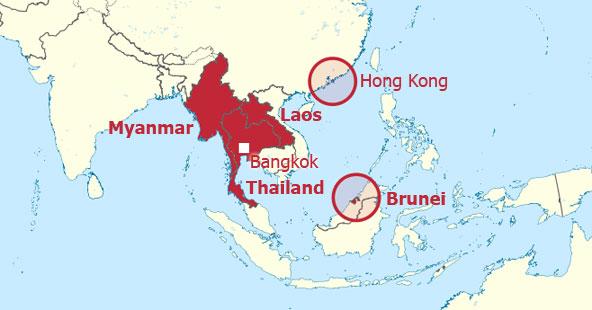
Article(s)
Moving away from the death penalty in Asia
By Sandra Babcock (DeathPenaltyWorldwide.org) in Bangkok, on 25 October 2013
Following up on the World Day Against the Death Penalty, successive meetings in Thailand and in China highlight decreasing support for capital punishment among Asian governments and public opinion.
2013
Brunei Darussalam
China
Japan
Lao People's Democratic Republic
Moratorium
Myanmar
Public Opinion
Thailand
Document(s)
Death in the time of Covid-19: Efforts to restore the death penalty in the Philippines
By Jose M.Jose and Maria Corazon A.De Ungria, on 10 August 2021
2021
Academic report
Drug Offenses
Philippines
More details See the document
The Philippine Congress recently passed a bill amending the Dangerous Drugs Act of 2002 and reimposing the penalty of life imprisonment to death for specific-drug related offenses. House Bill No. 7814 also allows the presumption of guilt in certain drug-related crimes unless otherwise proven, thereby overturning the long-standing constitutional presumption of innocence.
The bill has been sent to the Senate for its concurrence and could only be several steps away before being signed into law by President Rodrigo R. Duterte. This paper discusses the ramifications of the new bill and the questioned timeliness of its passage when the country continues to have a large and overcrowded prison population and a significant number of deaths due to SARS-CoV-2 in Southeast Asia.
The government’s lapses in following the 2021 national vaccination plan became apparent in the 31 March 2021 assessment made by the congressional health panel on the government’s response to the pandemic.
From the authors’ perspective, the urgency of using the country’s limited resources to help medical frontliners and local government units prevent further infections and save lives should have outweighed the efforts exerted to pass a law that legalized the death penalty for the third time in the Philippines.
- Document type Academic report
- Countries list Philippines
- Themes list Drug Offenses
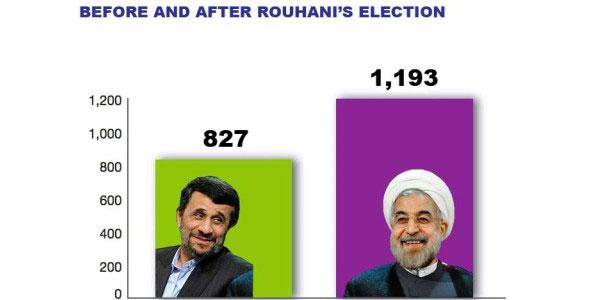
Article(s)
At least 1,193 executions since Hassan Rouhani’s election as president in Iran
on 13 March 2015
The annual report on the death penalty in 2014 shows that the Iranian authorities have executed more than 1193 people since the election of President Rouhani in June 2013. This is an average of more than two executions every day.
2015
Iran (Islamic Republic of)
Document(s)
Advisory on the Increased Vulnerabilty of Women Migrant Workers on Death Row
By Commission on Human Rights of the Philippines, on 3 December 2021
2021
Government body report
Drug Offenses
Legal Representation
Philippines
Women
frMore details Download [ pdf - 1457 Ko ]
The Commission on Human Rights of the Philippines issues this advisory to bring the Philippines’ attention to the heightened vulnerabilities of women Overseas Filipino Workers (OFWs).
- Document type Government body report
- Countries list Philippines
- Themes list Drug Offenses / Legal Representation / Women
- Available languages Avis sur la vulnérabilité accrue des travailleuses migrantes dans le couloir de la mort
Document(s)
Sentenced to death without execution: Why capital punishment has not yet been abolished in the Eastern Caribbean and Barbados
By Death Penalty Project, on 1 January 2020
2020
NGO report
More details See the document
The report Sentenced to Death Without Execution, Why capital punishment has not yet been abolished in the Eastern Caribbean and Barbados, was published on 7 April 2020. It presents the views of opinion formers and was written by Roger Hood and Florence Seemungal with the assistance of Amaya Athill.Six independent nations in the Eastern Caribbean – Antigua and Barbuda, Dominica, Grenada, St Kitts and Nevis, St Lucia, and St Vincent and the Grenadines, all members of the Organisation of Eastern Caribbean States (OECS) – and Barbados, retain the death penalty for murder. Most of these countries have not executed anyone sentenced to death for at least ten years with the vast majority not carrying out an execution for more than twenty years.This independent empirical study, which presents the views of 100 ‘opinion formers’, drawn from the seven jurisdictions, aims to shed light on why these countries hang on to capital punishment and what are the barriers to the complete abolition of the death penalty in these nations. The respondents were asked about their knowledge of the use of capital punishment in their respective countries and the extent to which, and why, they either supported the policy of retaining the death penalty or were in favour of its abolition, as well as the factors, beliefs, and assumptions that appeared to account for their government’s unwillingness to embrace complete abolition.Key findings include:- Across these seven nations, 48 of the interviewees favoured retention of the death penalty (18 of them strongly) and 52 were in favour of its abolition (30 of them strongly) Of those who favoured retention of the death penalty, only a minority were committed to retaining it: only 10 of 48 interviewees said they would ‘strongly oppose an Act of Parliament to completely abolish the death penalty by definitely voting against it’. Respondents believed the best strategies to persuade their respective governments to embrace reform were: ‘through creating an influential civil society pressure group ‘Citizens Against the Death Penalty’; by ‘mounting a legal challenge to the constitutionality of the death penalty’; or by ‘persuading the government to establish a high-level commission to report on the subject’.
- Document type NGO report
- Themes list Legal Representation, Mandatory Death Penalty,
Document(s)
The death penalty in Egypt: Ten year after the uprising
By Jeed Basyouni - Reprieve, on 10 August 2021
2021
NGO report
Cruel, Inhuman and Degrading Treatment and Punishment
Death Row Conditions
Egypt
Fair Trial
More details See the document
Reprieve wrote this report about the use of the death penalty in Egypt.
- Document type NGO report
- Countries list Egypt
- Themes list Cruel, Inhuman and Degrading Treatment and Punishment / Death Row Conditions / Fair Trial
Document(s)
Lethal Injustice in Asia: End unfair trials, stop executions
By Amnesty International / Anti-Death Penalty Asia Network, on 1 January 2011
2011
NGO report
enenenenenenenenzh-hantMore details See the document
More people are executed in the Asia-Pacific region than in the rest of the world combined. Add to this the probability that they were executed following an unfair trial, and the gross injustice of this punishment becomes all too clear.
- Document type NGO report
- Themes list Fair Trial,
- Available languages Korean : 아시아에서의 치명적 불의 불공정 재판을 멈춰라, 사형집행을 중단하라.Thai : การประหารชีวิตที่อยุติธรรม ในภูมิภาคเอเชีย ยุติการพิจารณาคดีที่ไม่เป็นธรรม ยกเลิกการประหารชีวิตUrdu : یفاصناان کلہم ںیم ایشیا ںیرک متخ توم ےازس ،دنب تامدقم ہنافصنمریغTagalog : NAKAMAMATAY NA KAWALAN NG KATARUNGAN SA ASYA Itigil ang Di Makatarungang paglilitis, Itigil ang PagbitayMongolian : АЗИ ТИВ ДЭХ ЭНЭРЭЛГҮЙ ШУДАРГА БУС ЯВДАЛ Шударга бусaap шүүх явдлыг зогсоож, цаазын ялыг халъяJapanese : 不当に奪われる生命 ~アジアにおける不公正な裁判を止め、 死刑執行の停止を~Hindi : एशिया में घातक अन्याय: समाप्ति अनुचित परीक्षण, सज़ाएँ बंद करोIndonesian : KETIDAKADILAN YANG MEMATIKAN DI ASIA Akhiri peradilan yang tidak adil, hentikan eksekusi亚洲的致命不公: 终止不公审判,停止处决
Document(s)
Philippines – Committee on the Elimination of Discrimination Against Women – Death Penalty – June 2022
on 21 July 2022
2022
NGO report
Philippines
Women
More details Download [ pdf - 443 Ko ]
The Government of the Philippines has taken commendable steps toward protecting and promoting the rights of women overseas Filipino workers (OFWs), but those workers remain vulnerable to exploitation and abuse, and when they come into conflict with the law in their host countries, their vulnerabilities are compounded by linguistic and legal barriers, as well as judicial systems which fail to account for the gendered context in which they allegedly committed criminal acts. The Government of the Philippines should do more to ensure protection of the rights of these women OFWs, particularly when they are at risk of being sentenced to death.
- Document type NGO report
- Countries list Philippines
- Themes list Women
Document(s)
State-Sanctioned Killing of Sexual Minorities: Looking Beyond the Death Penalty
By Mai Sato, Christopher Alexander - Eleos Justice and Capital Punishment Justice Project, Monash University, on 10 August 2021
2021
Academic report
Australia
Cruel, Inhuman and Degrading Treatment and Punishment
More details See the document
This report examines the extent to which states sanction the killing of sexual minorities. It looks beyond those countries that impose the death penalty for same-sex intimacy to the far greater number of countries in which state actors commission, condone, endorse and enable such killings.
He argues that the state-sanctioned killing of sexual minorities is often perpetrated well beyond the boundaries of the law, and even in countries that do not criminalise such conduct.
- Document type Academic report
- Countries list Australia
- Themes list Cruel, Inhuman and Degrading Treatment and Punishment
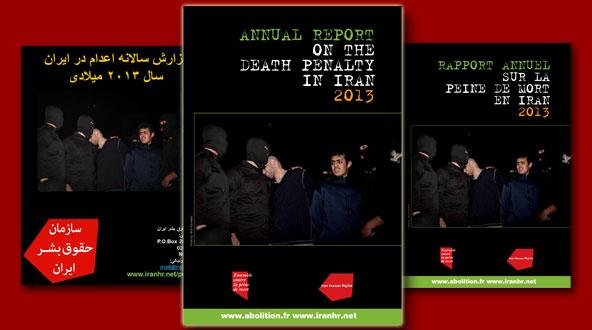
Article(s)
World Coalition members call for increased scrutiny of Iran
By Thomas Hubert, on 31 March 2014
The UN has renewed the mandate of its special rapporteur on Iran as a new IHR/ECPM annual report exposes rising execution numbers since increased engagement between President Rohani and the West.
2014
Iran (Islamic Republic of)
Document(s)
ULUSLARARASI AF ÖRGÜTÜ KÜRESEL RAPORU ÖLÜM CEZALARI VE İNFAZLAR 2022
By ULUSLARARASI AF ÖRGÜTÜ, on 16 May 2023
2023
NGO report
More details See the document
Bu rapor, Ocak-Aralık 2022 dönemi için ölüm cezasının adli kullanımını kapsamaktadır. Uluslararası Af Örgütü yalnızca infazlar, ölüm cezaları ve ölüm cezasının kullanımına ilişkin diğer hususlar (cezanın hafifletilmesi ve beraat gibi) hakkında makul teyitlerin olduğu durumlarda raporlama yapmaktadır. Birçok ülkede hükümetler ölüm cezasının kullanımına ilişkin bilgi yayınlamamaktadır.
- Document type NGO report
Document(s)
Moratorium on the use of the death penalty. Report of the Secretary-General (2008)
By United Nations, on 8 September 2020
2020
United Nations report
arruzh-hantesfrMore details See the document
The present report surveys respect for the rights of those sentenced to death as set out in the international human rights treaties and the guidelines established by the Economic and Social Council in 1984. Drawing on contributions of Member States, the report surveys various motivations for establishing a moratorium on or abolishing the death penalty, as well as those for retaining the death penalty. It also includes up-to-date statistical information on the worldwide use of the death penalty, including moratoriums established in States that have not abolished this form of punishment, together with relevant developments since the sixty-second session of the General Assembly. The report concludes by confirming the global trend towards abolition of the death penalty, the important role played by moratoriums in those States that seek to abolish it and possibilities for further work on the issue.
- Document type United Nations report
- Themes list Moratorium ,
- Available languages وقف استخدام عقوبة الإعدام :تقرير الأمين العامМоратории на применение смертной казни: Доклад Генерального секретаря暂停使用死刑: 秘书长的报告Moratoria del uso de la pena de muerte : Informe del Secretario GeneralMoratoires sur l'application de la peine de mort: Rapport du Secrétaire général
Document(s)
Capital punishment and implementation of the safeguards guaranteeing protection of the rights of those facing the death penalty: Report of the Secretary-General
By United Nations, on 1 January 2005
2005
United Nations report
arruesfrzh-hantMore details See the document
The present report, prepared pursuant to Economic and Social Council resolutions 1754 (LIV) of 16 May 1973 and 1995/57 of 28 July 1995, and Council decision 2005/247 of 22 July 2005, is the eighth quinquennial report of the Secretary-General on capital punishment. It covers the period 2004-2008 and reviews developments in the use of capital punishment. The report confirms a very marked trend towards abolition and restriction of the use of capital punishment in most countries. The rate at which States that retained the death penalty at the start of the quinquennium have abolished its use either in law or in practice is comparable with that of previous reporting periods, and may even be accelerating slightly. Moreover, countries that retain the death penalty are, with rare exceptions, significantly reducing its use in terms of numbers of persons executed and the crimes for which it may be imposed. Nevertheless, where capital punishment remains in force, there are serious problems with regard to the respect of international norms and standards, notably in the limitation of the death penalty to the most serious crimes, the exclusion of juvenile offenders from its scope, and guarantees of a fair trial.
- Document type United Nations report
- Themes list Trend Towards Abolition,
- Available languages عقوبة الإعدام وتنفيذ الضمانات التي تكفل حماية حقوق الذين يواجهون عقوبة الإعدام : م ذكّرة من الأمين العامСмертная казнь и применение мер, гарантирующих защиту прав тех, кому грозит смертная казнь : Доклад Генерального секретаряLa pena capital y la aplicación de las salvaguardias para garantizar la protección de los derechos de los condenados a la pena de muerte : Informe del Secretario GeneralPeine capitale et application des garanties pour la protection des droits des personnes passibles de la peine de mort: Rapport du Secrétaire général死刑和保护死刑犯权利的保障措施的执行情况: 秘书长的报告
Page(s)
About the Library
on 4 December 2020
For a resource to be placed in the library, two main criteria need to be satisfied. Firstly, the resource needs to be substantially based on the death penalty or shed light on a particular issue relevant to the death penalty.Secondly, the resources need to be published after the year 2000, to ensure that only the […]
2020
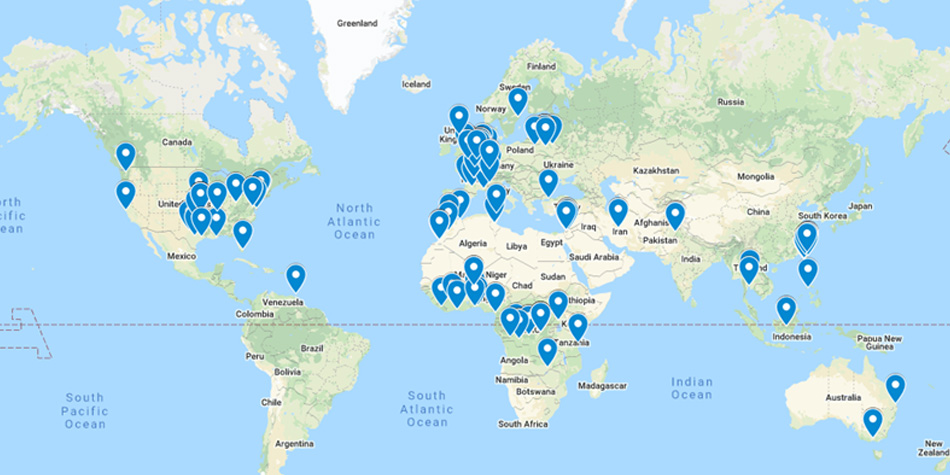
Article(s)
Take Action for World Day 2023!
By World coalition against the death penalty, on 20 September 2023
Take action now! The 21st World Day Against the Death Penalty is an excellent opportunity to publicly oppose the use of this inhumane punishment and to support those who are fighting for its abolition all over the world.
2023
Cruel, Inhuman and Degrading Treatment and Punishment

Article(s)
The international responsibility of States
By Pierre Désert, on 25 June 2008
When a State ratifies a treaty, it undertakes to respect the undertakings that it has made before the whole of the international community. If it fails to meets its obligations and goes against the provisions of the treaty, it can be held responsible at international level.
2008
Article(s)
Statement on executions in the USA
By World Coalition Against the Death Penalty, on 21 June 2019
As the worldwide trend towards abolition of the death penalty grows, the World Coalition Against the Death Penalty notes with concerns that the USA has reached a total of 1500 executions since 1977.
2019
United States
Article(s)
Indonesian activists face upward death penalty trend
on 10 February 2009
Indonesia-based researcher Dave McRae finds that a core group of abolitionists are battling a rise in the number of executions, death sentences and death row inmates in the country.
2009
Cruel, Inhuman and Degrading Treatment and Punishment
Drug Offenses
Indonesia
Public Opinion
Article(s)
Amnesty charts death penalty world map and vows to remove Belarus from it
on 25 March 2009
World Coalition member Amnesty International has released its annual statistics on the death penalty and launched a campaign against capital punishment in Belarus.
2009
Belarus
Belarus
China
Iran (Islamic Republic of)
Pakistan
Saudi Arabia
United States
Document(s)
REPORT AND RECOMMENDATIONS ON THE ADMINISTRATION OF THE DEATH PENALTY IN CALIFORNIA
By CALIFORNIA COMMISSION ON THE FAIR ADMINISTRATION OF JUSTICE, on 1 January 2008
2008
Government body report
More details See the document
This report is divided into three parts. In Part A, the Commission identifies flaws in California’s death penalty system that render it dysfunctional, and remedies we unanimously recommend to repair it. Repairing the system would enable California to achieve the national average of a twelve year delay between pronouncement of sentence and the completion of all judicial review of the sentence. In Part B, the Commission offers the Legislature, the Governor, and the voters of California information regarding alternatives available to California’s present death penalty law. The Commission makes no recommendation regarding these alternatives. In Part C, the Commission presents recommendations relating to miscellaneous aspects of the administration of California’s death penalty law. We were not able to reach unanimous agreement upon all of these recommendations, and dissents are noted where applicable. Commissioner Jerry Brown, Attorney General of California, agrees in principle with some of the Commission’s recommendations as set forth in his separate statement. Commissioner William Bratton, Chief of Police for the City of Los Angeles, abstains from the specific recommendations in this Report, and will issue a separate explanatory statement.
- Document type Government body report
- Themes list Networks,

Article(s)
Singapore: Authorities must end executions and stop targeting anti-death penalty activists to curb criticism
By World Coalition Against the Death Penalty, on 28 August 2024
We, the undersigned seven organizations, are gravely concerned by developments in Singapore since the beginning of August 2024, which has seen the authorities carry out two executions in violation of international safeguards on the death penalty, as well as limiting the right to freedom of expression of the Transformative Justice Collective, a non-governmental organization who […]
2024
Singapore
Article(s)
Taiwan activists battle in death penalty-triggered political crisis
on 19 March 2010
After Taiwan’s justice minister was forced to step down for not signing execution warrants, local and international abolitionists rushed in to restore a balanced debate and protect the country’s 44 death row inmates.
2010
Moratorium
Public Opinion
Taiwan
Taiwan
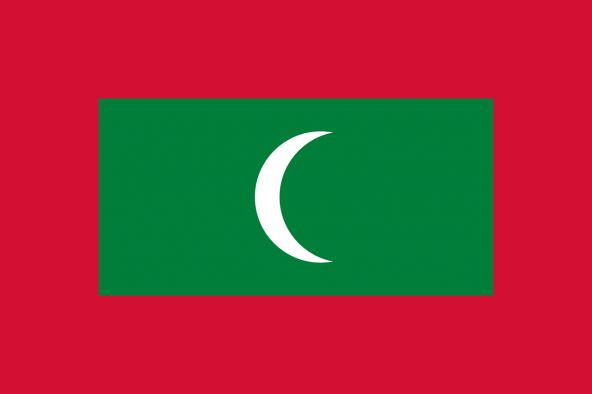
Article(s)
Civil society steps up against the end of a 60-year moratorium in the Maldives.
By Lorène du Crest, on 21 March 2017
Since the November 2013 elections, the Maldives have been moving towards the adoption of severe legal measures. On April, 27th 2014, the government decided to put an end to a 60-year moratorium.The civil society of Maldives is mobilizing against this worrying situation.
2017
Fair Trial
Juveniles
Maldives
Moratorium

Article(s)
Glossary of the Second Optional Protocol
By Pierre Désert, on 25 June 2008
From “Acceptance” to “Treaty”, discover the vocabulary of international law and get a clearer picture of the Second Optional Protocol.
2008

Article(s)
Groundbreaking Survey Reveals Iranians’ Attitudes Towards the Death Penalty
By GAMAAN Institute / World Coalition Against the Death Penalty, on 23 October 2020
This survey, conducted by the GAMAAN Institute between the 3rd and the 11th of September 2020, includes responses from about twenty thousand people living inside Iran.
2020
Iran (Islamic Republic of)
Public Opinion

Article(s)
Calling on international bodies to condemn drug executions in Saudi Arabia and seek to stop them
By European Saudi Organization for Human Rights, on 1 December 2022
The European Saudi Organization for Human Rights and Harm Reduction International, and the World Coalition Against the Death Penalty along with 32 other NGOs have called on the International Narcotics Control Board and the United Nations Office on Drugs and Crime to act on urgent measures in response to the series of drug-related executions carried […]
2022
Drug Offenses
Saudi Arabia

Article(s)
UN High Level Panel on the death penalty and limitation to the most serious crimes
By World coalition against the death penalty, on 14 March 2023
On February 28 2023, the United Nations (UN) Human Rights Council held its biennial high-level panel on the issue of the death penalty.
2023
Public Opinion

Article(s)
Philippines: House of Representatives must uphold international law obligations ahead of first death penalty vote
By Amnesty International & other organisations, on 19 February 2017
Nine international organisations are calling upon the Philippines to uphold its international obligations and not to restore death penalty in the country.
2017
Cruel, Inhuman and Degrading Treatment and Punishment
Philippines
Public Opinion
Article(s)
Teaching abolition in Taiwan
on 9 December 2009
Tsou Tzung Han is a Taiwanese teacher who actively took part in educational activities organised around World Day Against the Death Penalty. He writes about his experience with his students.
2009
Public Opinion
Taiwan
Taiwan
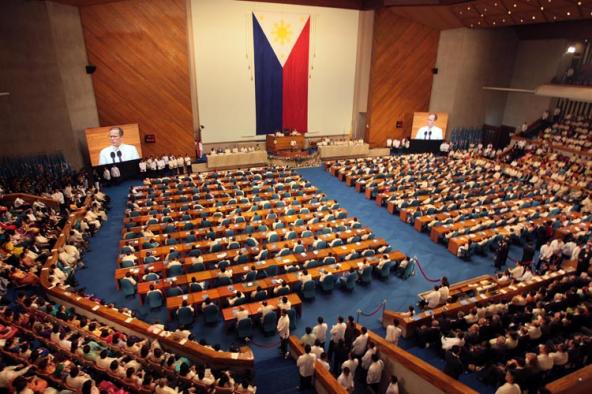
Article(s)
Philippines: one step forward in the reintroduction of the death penalty
By Lorène du Crest, on 3 March 2017
The Philippines are a step closer to the reintroduction of the death penalty, violating their international obligations.
2017
Drug Offenses
Philippines

Article(s)
How Business May Contribute to Universal Abolition
By Louis Linel, on 29 January 2021
Non-governmental organizations (NGOs) have long been at the forefront of the movement for human dignity, as the main, highly-specialized – and sometimes isolated– champions for social justice. However, a new generation of advocates from the private sector, whose primary center of interest or area of expertise seems disconnected from international human rights standards, has been […]
2021
Public Opinion

Article(s)
Local and International groups express solidarity for the families of executed prisoners in Singapore
By Think Centre, on 26 November 2016
We, the undersigned organisations, condemn the shameful execution of a Nigerian national, Chijioke Stephen Obioha, and a Malaysian national, Devendran a/l Supramaniam in Singapore on 18 November 2016, which runs counter to global trends towards abolition of capital punishment. Around the same time, at the 50th and 51st meeting of the UN General Assembly’s Third Committee’s 71st session proceedings, the Singapore representative introduced amendments, undermining the spirit of the draft resolution calling for a moratorium on the death penalty, supported by states such as Syria, Egypt and Bangladesh.
2016
Article(s)
The death penalty at the heart of ACHPR debates
on 18 May 2012
The 51st Ordinary Session of the African Commission on Human and Peoples’ Rights (ACHPR) was held in Banjul from April 18 to May 2, 2012. During the session, the Commission presented its “Study on the question of the death penalty in Africa” prepared by the Working Group on the death penalty of the ACHPR.
2012
Angola
Burundi
Gabon
Moratorium
Rwanda
Somalia
South Sudan
Sudan
Togo
Document(s)
Mobilization Kit World Day 2023
By World coalition against the death penalty, on 12 June 2023
2023
Campaigning
World Coalition
frMore details Download [ pdf - 864 Ko ]
For the 21th year in a row, the World Coalition Against the Death Penalty is calling for local initiatives and world-wide actions that shine a spotlight on the abolition of the death penalty. The goal of this Mobilization Kit is to inform of this year’s objectives as well provide ideas of activities that boost the global abolitionist goal. This year’s World Day is dedicated to people who, during the process of being sentenced to death, or following the sentence of their death, have been victims of torture.
- Document type Campaigning / World Coalition
- Available languages Kit de mobilisation Journée mondiale 2023
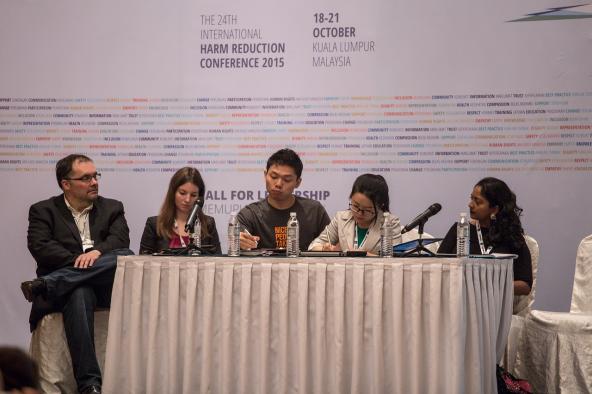
Article(s)
The death penalty for drugs must go, it has no place in a civilised society
By Aurélie Plaçais, on 21 October 2015
Those were the words of Anand Grover, former UN Special Rapporteur on the right to health during the opening ceremony of Harm Reduction International’s 24th conference in Kuala Lumpur, Malaysia.
2015
China
Drug Offenses
India
Indonesia
Malaysia
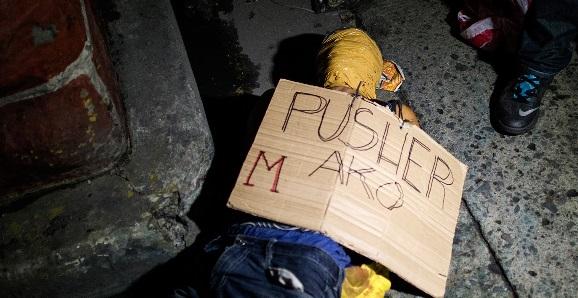
Article(s)
Congress should block effort to reintroduce death penalty in the Philippines
By FIDH and the World Coalition, on 5 December 2016
UPDATE: The Bill on the death penalty has not been discussed in plenary session at the House of Representatives in December. The House is now in recess until 16 January 2017. We, the 70 undersigned organizations and individuals, express serious concern over the rapid efforts by members of the House of Representatives of the Philippines to adopt a bill restoring the death penalty in the country.
2016
Philippines
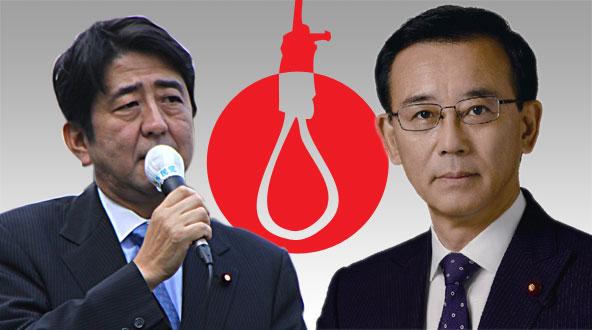
Article(s)
First executions under Abe government raise fears of more
By Thomas Hubert, on 21 February 2013
Abolitionists worldwide protest the execution of three prisoners in Japan on 21st February and call on the new justice minister to heed international calls for restraint.
2013
Japan
Moratorium

Article(s)
Abolition of the death penalty at the United Nations Human Rights Council 56th session
on 30 August 2024
The United Nations Human Rights Council met for its 56th Regular Session from June 18 to July 12, 2024. If you missed it, here is what happened regarding the abolition of the death penalty!
2024
Trend Towards Abolition
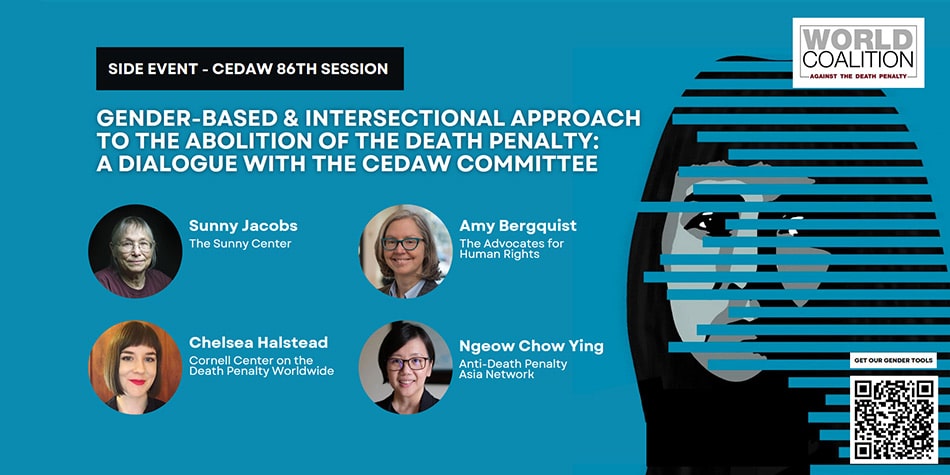
Article(s)
CEDAW experts welcome World Coalition members in the #CEDAW86 side event on gender and the death penalty
By Venus Aves, on 8 November 2023
On 22 October 2023, the World Coalition Against the Death Penalty (World Coalition) organized a closed-door side event on a gender-based and intersectional approach to abolition as part of the 86th session of the Committee on the Elimination of Discrimination Against Women (CEDAW).
2023
Gender

Jobs
Consultant for an external evaluation for our “Leave no woman on death row”
on 1 August 2024
External evaluation of the impact of the project “Leave no woman on death row – Raising awareness of the gender-based and intersectional discrimination faced by women, men and gender non-conforming people on death row worldwide, in order to advocate for the total abolition of the death penalty”. (2022-2025) Presentation of the World Coalition Against the […]
2024
Document(s)
Estimating the effect of death penalty moratoriums on homicide rates using the synthetic control method
By Stephen N. Oliphant, on 18 September 2022
2022
Academic report
Moratorium
United States
More details See the document
Research examining death penalty deterrence has been characterized as inconclusive and uninformative. The present analysis heeds a recommendation from prior research to examine single-state changes in death penalty policy using the synthetic control method. Data from the years 1979–2019 were used to construct synthetic controls and estimate the effects of death penalty moratoriums on homicide rates in Illinois, New Jersey, Washington, and Pennsylvania. Moratoriums on capital punishment resulted in nonsignificant homicide reductions in all four states.
- Document type Academic report
- Countries list United States
- Themes list Moratorium
Document(s)
The question of the death penalty: Report of the Secretary-General
By United Nations, on 1 January 2006
2006
International law - United Nations
arrufrzh-hantesMore details See the document
The present report contains information covering developments during 2006. The report indicates that the trend towards abolition of the death penalty continues. This is illustrated, inter alia, by the increase in the number of countries that have abolished the death penalty and by the increase in ratifications of international instruments that provide for the abolition of this form of punishment.
- Document type International law - United Nations
- Themes list Trend Towards Abolition,
- Available languages دام عقوبة مسألة: العام الأمينВопрос о смертной казни: Доклад Генерального секретаряQuestion de la peine de mort : Rapport du Secrétaire général死刑问题: 秘书长的报告La cuestión de la pena capital: Informe del Secretario General
Document(s)
Report of the Special Rapporteur on extrajudicial, summary or arbitrary executions, Philip Alston
By United Nations / Philip Alston, on 1 January 2007
2007
International law - United Nations
arrufresMore details See the document
The present report details the activities of the Special Rapporteur in 2009 and the first four months of 2010. This is the final report to the Human Rights Council by Philip Alston in his capacity as Special Rapporteur. It analyses the activities and working methods of the mandate over the past six years, and identifies important issues for future research. Detailed addenda to this report address: (a) accountability for killings by police; (b) election-related killings; and (c) targeted killings.
- Document type International law - United Nations
- Themes list Trend Towards Abolition,
- Available languages تقرير المقرر الخاص المعني بحالات الإعدام خارج نطاق القضاءأو بإجراءات موجزة أو تعسفًا، السيد فيليب ألستونДоклад Специального докладчика по вопросу о внесудебных казнях, казнях без надлежащего судебного разбирательства или произвольных казнях, Филипа АлстонаRapport du Rapporteur spécial sur les exécutions extrajudiciaires, sommaires ou arbitraires, M. Philip AlstonInforme del Relator Especial, Philip Alston, sobre las ejecuciones extrajudiciales, sumarias o arbitrarias
Document(s)
Question of the death penalty : report of the Secretary-General submitted pursuant to Commission on Human Rights resolution 2002/77
By United Nations, on 1 January 2003
2003
International law - United Nations
arrufrzh-hantesMore details See the document
The present report contains information covering the period from January 2001 through December 2002, in order to ensure that there are no gaps in coverage since the last version of the sixth quinquennial report which covered information up to the end of 2000. The report indicates that the trend towards abolition of the death penalty continues, which is illustrated, inter alia, by the increase in the number of ratifications of international instruments that provide for the abolition of this punishment.
- Document type International law - United Nations
- Themes list Trend Towards Abolition,
- Available languages الموضوع العقوبة الاعدام : تقرير الأمين العام مقدم بشأن قرار اللجنة للحقوق الانسان 2002/77Вопрос о смертной казни: Доклад Генерального секретаря, представляемый в соответствии с резолюцией 2002/77 КомиссииQuestion de la peine de mort: Rapport du Secrétaire général présenté en application de la résolution 2002/77死刑问题: 秘书长按照委员会第2002/77 号决议提交的报告Cuestión de la pena capital: Informe del Secretario General presentado de conformidad con la resolución 2002/77 de la Comisión
Document(s)
Capital Punishment in Pennsylvania: The Report of the Task Force and Advisory Committee
By Joint State Government Commission, on 1 January 2018
2018
Government body report
More details See the document
Senate Resolution No.6 in 2011 called for a study of the contemporary capital punishment system in the Commonwealth. Pennsylvania is among the 31 states and the federal government that authorize capital punishment. During the last four decades in Pennsylvania, hundreds of murderers have been convicted and condemned to death; however, there have been only three executions.This study follows others on the same or related topics, including those conducted by the American Bar Association and the Pennsylvania Supreme Court Committee on Racial and Gender Bias in the Justice System. The SR6 report is the culmination of work done by the Justice Center for Research at The Pennsylvania State University, the Interbranch Commission on Gender, Racial and Ethnic Fairness, and an advisory committee comprised of judges, public defenders, district attorneys, victim advocates, inmate advocates, clergy, law enforcement officials, and other expert stakeholders.
- Document type Government body report
- Themes list Death Penalty, Statistics,
Document(s)
Abolition of the Death Penalty in the Eastern Caribbean and Barbados
on 15 December 2020
2020
Lobbying
Barbados
Trend Towards Abolition
More details Download [ pdf - 2611 Ko ]
Greater Caribbean for Life has launched its educational toolkit to assist activists and organisations as they work toward abolishing the death penalty in the Greater Caribbean. The production of this toolkit forms part of GCL’s activities under its EU partnered project to educate on death penalty abolition in the Eastern Caribbean and Barbados.
The launch of the toolkit is timely as a few of these target countries recently voted against adopting the UN Moratorium on the use of the death penalty and countries that had previously chosen to abstain have now firmly voted against the resolution.
GCL members condemn the rise of violent crime in our region and express solidarity and compassion with the victims of crime, however, we reject the notion that capital punishment will act as a deterrent or foster respect for life in our communities.
It is our hope that this toolkit will assist in promoting respect for the right to life for all human beings in the Caribbean region.
- Document type Lobbying
- Countries list Barbados
- Themes list Trend Towards Abolition
Document(s)
Mobilization Kit World Day 2022
By the World Coalition Against the Death Penalty, on 9 June 2022
2022
World Coalition
frMore details Download [ pdf - 892 Ko ]
For the 20th year in a row, the World Coalition Against the Death Penalty is calling for local initiatives and world-wide actions that shine a spotlight on the abolition of the death penalty. The goal of this Mobilization Kit is to inform of this year’s objectives as well provide ideas of activities that boost the global abolitionist goal. This year’s World Day is dedicated to people who, during the process of being sentenced to death, or following the sentence of their death, have been victims of torture.
- Document type World Coalition
- Available languages Kit de mobilisation Journée mondiale 2022
Document(s)
Indonesian : KETIDAKADILAN YANG MEMATIKAN DI ASIA Akhiri peradilan yang tidak adil, hentikan eksekusi
By Amnesty International / Anti-Death Penalty Asia Network, on 8 September 2020
2020
NGO report
enenenenenenenenzh-hantMore details See the document
Lebih banyak orang yang dieksekusi mati di kawasan Asia-Pasifik dibandingkan dengan gabungan jumlah hukuman mati di kawasan lain di dunia. Ditambah lagi adanya kemungkinan bahwa mereka dieksekusi hukuman mati setelah melalui sebuah peradilan yang tidak adil, maka ketidakadilan yang sangat besar dari hukuman ini menjadi semakin jelas.
- Document type NGO report
- Themes list Fair Trial,
- Available languages Korean : 아시아에서의 치명적 불의 불공정 재판을 멈춰라, 사형집행을 중단하라.Thai : การประหารชีวิตที่อยุติธรรม ในภูมิภาคเอเชีย ยุติการพิจารณาคดีที่ไม่เป็นธรรม ยกเลิกการประหารชีวิตUrdu : یفاصناان کلہم ںیم ایشیا ںیرک متخ توم ےازس ،دنب تامدقم ہنافصنمریغTagalog : NAKAMAMATAY NA KAWALAN NG KATARUNGAN SA ASYA Itigil ang Di Makatarungang paglilitis, Itigil ang PagbitayMongolian : АЗИ ТИВ ДЭХ ЭНЭРЭЛГҮЙ ШУДАРГА БУС ЯВДАЛ Шударга бусaap шүүх явдлыг зогсоож, цаазын ялыг халъяJapanese : 不当に奪われる生命 ~アジアにおける不公正な裁判を止め、 死刑執行の停止を~Hindi : एशिया में घातक अन्याय: समाप्ति अनुचित परीक्षण, सज़ाएँ बंद करोLethal Injustice in Asia: End unfair trials, stop executions亚洲的致命不公: 终止不公审判,停止处决
Document(s)
Going backwards The death penalty in Southeast Asia
By International Federation for Human Rights (FIDH), on 1 January 2016
2016
NGO report
More details See the document
Over the past year, Southeast Asia has witnessed significant setbacks with regard to the abolitionof the death penalty. Indonesia, Malaysia, and Singapore have all carried out executions. It isunknown whether any executions were carried out in Vietnam, where statistics on the deathpenalty continue to be classified as ‘state secrets.’ In the name of combating drug trafficking,Indonesian President Joko Widodo is rapidly becoming Southeast Asia’s top executioner. ThePhilippines, which effectively abolished the death penalty for all crimes in 2006, is consideringreinstating capital punishment as part of President Rodrigo Duterte’s ill-conceived and disastrous‘war on drugs.’
- Document type NGO report
- Themes list Country/Regional profiles,
Document(s)
Tanzania Human Rights Report – 2017 ‘Unknown Assailants’: A Threat to Human Rights
By Legal and Human Rights Centre, on 8 September 2020
2020
NGO report
United Republic of Tanzania
More details See the document
“Unknown Assailants: A Threat to Human Rights”So is named The Tanzania Human Rights Report of 2017 released by the Legal and Human Rights Centre (LHRC).This report was published on April, 25th 2018 and it enlights for the fifteenth time the major human rights violation in Tanzania. This report, while it deals with human rights violation in Tanzania concerning civil and politial rights, freedom of violence, freedom of expression, etc, also presents some issues due to these violations such as the right to participate in governance, particularly the right to participate in political life, which are deny.
- Document type NGO report
- Countries list United Republic of Tanzania
- Themes list Death Penalty, Statistics, Country/Regional profiles,
Document(s)
Death sentences and executions in 2011
By Amnesty International, on 1 January 2012
2012
NGO report
enenfafrzh-hantesMore details See the document
Developments on the use of the death penalty in 2011 confirmed the global trend towards abolition. The number of countries that were known to have carried out death sentences decreased compared to the previous year, and overall, progress was recorded in all regions of the world. In this report, Amnesty International analyses some of the key developments in the worldwide application of the death penalty, citing figures it has gathered on the number of death sentences handed down and executions carried out during the year.
- Document type NGO report
- Themes list Statistics,
- Available languages Thai : สถานการณ์โทษประหาร และการประหารชีวิต ในปี 2554Korean : 연례사형현황 보고서 2011 사형선고와 사형집행اعدام و صدور حکم اعدام در سال2011Condamnations à mort et executions 2011國際特赦組織 全球死刑報告 2011Condenas a muerte y ejecuciones 2011
Document(s)
Deadly Injustice. Visualizing Executions in Iran 2011-2015
By Iran Human Rights (IHR), on 1 January 2015
2015
NGO report
More details See the document
On the occasion of the 13th World Day Against the Death Penalty, Iran Human Rights in collaboration with “Small media” published an overview of the IHR’s annual reports from 2011-2014 along with the first half of 2015. This report shows that the average daily number of executions have increase from under two executions each day in 2011-2014 to three daily executions in 2013. The report also highlights some of the victims of the Iranian authorities deadly injustice.
- Document type NGO report
- Themes list Drug Offences, Statistics, Country/Regional profiles,
Document(s)
The Innocence Network Exonerations 2011
By The Innocence Network, on 1 January 2011
2011
Working with...
More details See the document
21 people were exonerated by the Innocence Network in 2011. Proving their innocence took years of work by dedicated teams of lawyers and staffers. These 21 represent a small fraction of the thousands of people who are behind bard for crimes they didn’t commit.
- Document type Working with...
- Themes list Innocence,
Document(s)
Isolation and desolation conditions of detention of people sentenced to death Malaysia
By Carole Berrih, Ngeow Chow Ying, ECPM, ADPAN, on 27 May 2021
2021
NGO report
Death Row Conditions
Malaysia
frMore details See the document
Isolation and Desolation – Conditions of Detention of People Sentenced to Death in Malaysia is the first ever fact-finding mission report on the conditions of detention of death row prisoners in Malaysia.
It examines the use of death penalty in Malaysia as well as the actual situation of people on death row.
This report is not meant to point fingers but rather to put the facts on the table in a transparent manner and work from there. It is mainly an advocacy tool for all abolitionist stakeholders, from civil society actors to the parliamentarians who will keep fighting for the abolition of the death penalty.
- Document type NGO report
- Countries list Malaysia
- Themes list Death Row Conditions
- Available languages Isolement et désespoir conditions de détention des condamnés à mort Malaisie
Document(s)
The Death Penalty in Japan: A report on Japan’s legal obligations under the International Convenant on Civil and Political Rights and an assessment of public attitudes to capital punishment
By Saul Lehrfreund / Death Penalty Project, on 8 September 2020
2020
NGO report
Japan
More details See the document
This report was commissioned by the Death Penalty Project in order to assess Japan’s legal obligations on the use of the death penalty under the ICCPR, and to examine the related subject of public attitudes toward capital punishment in Japan.
- Document type NGO report
- Countries list Japan
- Themes list International law, Public opinion,
Document(s)
Respect for Minimum Standards? Report on the Death Penalty in China
on 1 January 2020
2020
NGO report
China
More details See the document
- Document type NGO report
- Countries list China
Document(s)
The death penalty worldwide: 2012 report
By HANDS OFF CAIN, on 1 January 2012
2012
NGO report
More details See the document
Hands Off Cain’s 2012 Report, edited by Reality Book, presents the most important facts regarding the practice of the death penalty in 2011 and in the first six months of 2012. Data shows that China, Iran and Saudi Arabia were the top three “Executioner-Countries” in the world in 2011, while also demonstrating a positive evolution towards the abolition of the death penalty which has been developing worldwide during recent years.
- Document type NGO report
- Themes list Trend Towards Abolition, Statistics, Country/Regional profiles,
Document(s)
Silently Silenced: State-Sanctioned Killing of Women
By Eleos Justice, Cornell Center on the Death Penalty Worldwide , on 30 March 2023
2023
Academic report
Women
More details See the document
Silently Silenced: State-Sanctioned Killing of Women examines States’ involvement in ‘feminicide’. Feminicide is understood as the gender-motivated killing of women and girls that States actively engage in, condone, excuse, or fail to prevent. We use the term ‘feminicide’ to refer to the various forms of State-sanctioned killing of women and girls. In this report, we outline States’ direct involvement and complicity in the killings of women and girls and explain these deaths as a product of gendered forms of structural violence upheld and sustained by the State. We examine 3 types of feminicide: gender- related killings of women directly perpetrated by the State, such as the death penalty and extrajudicial killings; gender-related killings of women committed by non-State actors that are excused or condoned by the State; and gender-related killings of women that the State failed to prevent.
- Document type Academic report
- Themes list Women
Document(s)
Fact Finding Report of LFHRI of the Sentencing of 17 Indians to Death by the Shariat Court of Sharjah, United Arab Emirates
By Lawyers for Human Rights International, on 1 January 2010
2010
Legal Representation
More details See the document
Lawyers For Human Rights International an Organisation of Lawyers having its base in Punjab, India, being part of an International movement against Death Penalty, decided to visit Sharjah jail in UAE to meet the 17 prisoners who have been sentenced to Death for killing a Pakistani youth. Two member team comprising of Navkiran Singh a Human Rights Lawyer & Activist from Panjab, practicing in the High Court at Chandigarh and who is the General Secretary of LFHRI along with another Lawyer Gagan Aggarwal, visited Dubai and Sharjah on 13th and 14th of April 2010 and met the Lawyers who have been hired to defend these 17 Indians by the Indian Consulate of UAE and also visited Sharjah jail and met all the prisoners. This report presents their findings.
- Document type Legal Representation
- Themes list Networks,
Document(s)
Report to the Committee on Defender Services Judicial Conference of the United States – Update on the Cost and Quality of Defense Representation in Federal Death Penalty Cases
By Lisa Greenman / Jon B. Gould / Office of Defender Services of the Administrative Office of the U.S. Courts, on 8 September 2020
2020
NGO report
United States
More details See the document
Part I of this report offers an introduction and overview of the research. Part II examines the way prosecution policies and practices have developed from 1989, the beginning of the modern federal death penalty era, through the end of 2009. Parts III, IV, and V of this report discuss the costs associated with defending a federal capital case. Section VI describes qualitative data obtained through interviews of federal judges who had presided over a federal death penalty case and experienced federal capital defense counsel on topics such as the quality of defense representation, case budgeting and case management practices, the role of experts, and the death penalty authorization process. Finally, in Sections VII and VIII, the Recommendations of the 1998 Spencer Report are reaffirmed, and the Commentary associated with those recommendations is updated to reflect the past 12 years of experience with federal capital litigation.
- Document type NGO report
- Countries list United States
- Themes list Financial cost,
Document(s)
REPORT ON THE CRIMINAL JUSTICE SYSTEM IN TRINIDAD AND TOBAGO
By Bar Human Rights Committee, on 1 January 2003
2003
NGO report
More details See the document
The purpose of the Report is to assist the Honourable Court by describing the criminal justice process in Trinidad as it applies to those accused of murder. As a criminal defence and constitutional law attorneys in Trinidad, we have been asked to address, in particular, some of the shortcomings apparent in the Trinidadian criminal justice system and certain related constitutional issues. The Report deals with the following issues: a. The constitutional history and sources of law in Trinidad; b. The law of murder in Trinidad; c. An overview of criminal procedure; d. The stages of the criminal process in murder cases; e. The mandatory death penalty; f. The prerogative of mercy.
- Document type NGO report
- Themes list Networks,
Document(s)
Annual report on the death penalty in Iran 2016
By Ensemble contre la peine de mort (ECPM) / Iran Human Rights (IHR), on 1 January 2017
2017
NGO report
frMore details See the document
The 9th annual report by Iran Human Rights (IHR) on the death penalty provides an assessment and analysis of the death penalty trends in 2016 in the Islamic Republic of Iran. The report sets out the number of executions in 2016, the trend compared to previous years, charges, geographic distribution and a monthly breakdown of executions
- Document type NGO report
- Themes list World Coalition Against the Death Penalty, Death Penalty, Statistics, Country/Regional profiles,
- Available languages Rapport annuel sur la peine de mort en Iran 2016
Document(s)
Question of the death penalty : report of the Secretary-General submitted pursuant to Commission resolution 2003/67
By United Nations, on 1 January 2004
2004
International law - United Nations
arrufrzh-hantesMore details See the document
The present report contains information covering the period from January 2003 through December 2003. The report indicates that the trend towards abolition of the death penalty continues, illustrated, inter alia, by the increase in the number of ratifications of international instruments that provide for the abolition of this punishment.
- Document type International law - United Nations
- Themes list Trend Towards Abolition,
- Available languages الموضوع العقوبة الاعدام : تقرير الأمين العام مقدم بشأن قرار اللجنة 2003/67По вопросу смертной казни: доклад Генерального Секретаря, предоставленный в ответ на резолюцию 2003/67 Комиссии по правам человекаQuestion de la peine de mort: Rapport du Secrétaire général présenté en application de la résolution 2003/67死刑问题: 秘书长按照委员会第2003/67 号决议提交的报告Cuestión de la pena capital: Informe del Secretario General presentado de conformidad con la resolución 2003/67
Document(s)
Death Penalty India Report – Volume 1
By Anup Surendranath / National Law University, New Delhi Press, on 8 September 2020
2020
NGO report
India
More details See the document
This project sought to answer questions regarding the socio-economic profile of prisoners sentenced to death in India while looking into the process of death sentencing in itself. By means of meaningful statistics and case studies, this report manages to enlighten some aspects of the death penalty in India which are generally not fully explored and triggers a sociological discussion on these thorny issues that goes beyond the legal analysis of Supreme Court judgments.Chapters:1) Coverage of the project2) Durations on death row3) Nature of crimes4) Socio-economic profile5) Legal assistanceLink to Volume 2: http://www.worldcoalition.org/resourcecentre/document/id/1463669874
- Document type NGO report
- Countries list India
- Themes list Discrimination, Country/Regional profiles,
Document(s)
Capital punishment and implementation of the safeguards guaranteeing protection of the rights of those facing the death penalty : report of the Secretary-General
By United Nations, on 1 January 2001
2001
United Nations report
arrufrzh-hantesMore details See the document
The present, sixth quinquennial report contains a review of the trends in the application of the death penalty, including the implementation of the safeguards, during the period l994-2000. It is a revised, updated version of the report of the Secretary-General on the subject (E/2000/3) that was submitted to the Council at its substantive session of 2000, to the Commission on Crime Prevention and Criminal Justice at its ninth session and to the Commission on Human Rights at its fifty-sixth session. Sixty-three countries participated in the survey. There was again a relatively poor response from retentionist countries, especially those making the most use of capital punishment. One major conclusion to be drawn is that, since l994, the rate at which countries have embraced abolition has remained unchanged.
- Document type United Nations report
- Themes list Trend Towards Abolition,
- Available languages عقوبة الإعدام وتنفيذ الضمانات التي تكفل حماية حقوق الذين يواجهون عقوبة الإعدام : م ذكّرة من الأمين العامСмертная казнь и применение мер, гарантирующих защиту прав тех, кому грозит смертная казнь : Доклад Генерального секретаряPeine capitale et application des garanties pour la protection des droits des personnes passibles de la peine de mort: Rapport du Secrétaire général死刑和保护死刑犯权利的保障措施的执行情况: 秘书长的报告La pena capital y la aplicación de las salvaguardias para garantizar la protección de los derechos de los condenados a la pena de muerte: Informe del Secretario General
Document(s)
Question of the death penalty: Report of the Secretary-General
By United Nations, on 1 January 2008
2008
International law - United Nations
arrufrzh-hantesMore details See the document
The present report contains information covering the period from January 2006 to May 2008. The report indicates that the trend towards abolition of the death penalty continues; this is illustrated, inter alia, by the increase in the number of countries that are completely abolitionist and by the increase in ratifications of international instruments that provide for the abolition of this form of punishment.
- Document type International law - United Nations
- Themes list Trend Towards Abolition,
- Available languages مسألة عقوبة الإعدام: تقرير مقدم من الأمين العامВопрос о смертной казни: Доклад Генерального секретаряQuestion de la peine de mort : Rapport du Secrétaire général死刑问题: 秘书长的报告La cuestión de la pena capital: Informe del Secretario General
Document(s)
Extrajudicial, summary or arbitrary executions: Report of the Special Rapporteur, Philip Alston
By United Nations / Philip Alston, on 1 January 2004
2004
International law - United Nations
arfrzh-hantesruMore details See the document
This report is submitted pursuant to Commission resolution 2005/34, and should be read in conjunction with its various addenda. They provide the following: a detailed analysis of communications sent to Governments which describe alleged cases of extrajudicial executions; reports on country missions to Nigeria and Sri Lanka during 2005; a report on the principle of transparency in relation to the death penalty; and several reports aimed at following up on earlier country missions to the Sudan, Brazil, Honduras and Jamaica.
- Document type International law - United Nations
- Themes list Trend Towards Abolition,
- Available languages تعسفاً أو موجزة بإجراءات أو القضاء نطاق خارج الإعدام حا ألستون* فيليب الخاص المقرر تExécutions extrajudiciaires, sommaires ou arbitraires: Rapport du Rapporteur spécial, Philip Alston法外处决、即审即决或任意处决问题特别报告员: 菲利普·奥尔斯顿的报告Las ejecuciones extrajudiciales, sumarias o arbitrarias: Informe del Relator Especial, Sr. Philip AlstonВнесудебные казни, казни без надлежащего судебного разбирательства или произвольные казни: Доклад Специального докладчика Филипа Алстона
Document(s)
The question of the death penalty: Report of the Secretary-General
By United Nations, on 1 January 2006
2006
International law - United Nations
arrufrzh-hantesMore details See the document
The present report contains information covering the period from January 2004 to December 2005. The report indicates that the trend towards abolition of the death penalty continues; this is illustrated, inter alia, by the increase in the number of countries that are completely abolitionist and by the increase in ratifications of international instruments that provide for the abolition of this punishment.
- Document type International law - United Nations
- Themes list Trend Towards Abolition,
- Available languages مسألة عقوبة الإعدام; تقرير الأمين العامВопрос о смертной казни: Доклад Генерального секретаряQuestion de la peine de mort : Rapport du Secrétaire général死刑问题: 秘书长的报告La cuestión de la pena capital: Informe del Secretario General
Document(s)
Death Penalty India Report – Volume 2
By Anup Surendranath / National Law University, New Delhi Press, on 8 September 2020
2020
NGO report
India
More details See the document
This project sought to answer questions regarding the socio-economic profile of prisoners sentenced to death in India while looking into the process of death sentencing in itself. By means of meaningful statistics and case studies, this report manages to enlighten some aspects of the death penalty in India which are generally not fully explored and triggers a sociological discussion on these thorny issues that goes beyond the legal analysis of Supreme Court judgments.Chapters:6) Experience in custody7) Trial and appeals8) Living on death row9) Seeking mercy10) ImpactLink to Volume 1: http://www.worldcoalition.org/resourcecentre/document/id/1462890615
- Document type NGO report
- Countries list India
- Themes list Discrimination, Country/Regional profiles,
Document(s)
Moratoriums on the use of the death penalty. Report of the Secretary-General (2010)
By United Nations, on 8 September 2020
United Nations report
frarruzh-hantesMore details See the document
The present report is submitted to the General Assembly pursuant to General Assembly resolution 63/168. The report confirms the global trend towards abolition of the death penalty. It also recommends that Member States introduce a moratorium on the death penalty. Those States which still intend to implement the death penalty and are not willing to establish a moratorium should apply the death penalty only in the case of the most serious crimes. The protection of the rights of those facing the death penalty should be ensured, pursuant to the relevant international laws. Furthermore, in that regard, States have an obligation not to practise the death penalty in secrecy, nor to practice discrimination in its application.
- Document type United Nations report
- Themes list Moratorium ,
- Available languages Rapport 2013 - Moratoire sur l'application de la peine de mortوقف تطبيق عقوبة الإعدام تقرير الأمين العامМоратории на применение смертной казни : Доклад Генерального секретаря暂停使用死刑: 秘书长的报告Moratoria del uso de la pena de muerte : Informe del Secretario General
Document(s)
Extrajudicial, summary or arbitrary executions: Report of the Special Rapporteur, Ms. Asma Jahangir
By United Nations / Asma Jahangir, on 1 January 1999
1999
International law - United Nations
arrufrzh-hantesMore details See the document
This report is submitted pursuant to Commission on Human Rightsresolution 1998/68 of 21 April 1998 entitled “Extrajudicial, summary orarbitrary executions”. It is the first report submitted to the Commission byMs. Asma Jahangir and the sixteenth submitted to the Commission since themandate on “summary and arbitrary executions” was established by Economic andSocial Council resolution 1982/35 of 7 May 1982.
- Document type International law - United Nations
- Themes list Trend Towards Abolition,
- Available languages حالات الإعدام خارج نطاق القضاء أو بإجراء اتموجة أو تعسفاً تقرير المقرر الخاص اسمة جهانقيرВнесудебные, суммарные и произвольные казни: Отчет специального докладчика Асмы Джахангир (Asma Jahangir)Exécutions extrajudiciaires, sommaires ou arbitraires: Rapport de Mme Asma Jahangir, Rapporteuse spéciale法外处决即审即决或任意处决: 特别报告员阿斯玛贾汉吉尔女士Las ejecuciones extrajudiciales, sumarias o arbitrarias: Informe de la Relatora Especial, Sra. Asma Jahangir
Document(s)
TRANSPARENCY AND THE IMPOSITION OF THE DEATH PENALTY, Report of the Special Rapporteur, Philip Alston
By United Nations / Philip Alston, on 1 January 2006
2006
International law - United Nations
arrufrzh-hantesMore details See the document
The present report of the Special Rapporteur on extrajudicial, summary or arbitrary executions analyses a critical area of non-compliance with legal safeguards designed to protect the right to life. It builds upon the proposition that “[c]ountries that have maintained the death penalty are not prohibited by international law from making that choice, but they have a clear obligation to disclose the details of their application of the penalty” (E/CN.4/2005/7, para. 59). The report analyses the legal basis of that transparency obligation and examines case studies that illustrate the major problems that exist in this area.
- Document type International law - United Nations
- Themes list Trend Towards Abolition,
- Available languages الإعدام عقوبة وفرض الش, ألستون∗ فيليب السيد الخاص، المقررТРАНСПАРЕНТНОСТЬ И ВЫНЕСЕНИЕ СМЕРТНОГО ПРИГОВОРА, Доклад Специального докладчика Филипа АлстонаTRANSPARENCE ET IMPOSITION DE LA PEINE DE MORT, Rapport du Rapporteur spécial, M. Philip Alston死刑的公开和执行问题, 特别报告员菲利普·奥尔斯顿的报告LA TRANSPARENCIA Y LA IMPOSICIÓN DE LA PENA DE MUERTE, Informe del Relator Especial, Philip Alston
Document(s)
Extrajudicial, summary or arbitrary executions: Report of the Special Rapporteur, Bacre Waly Ndiaye
By United Nations / Bacre Waly Ndiaye, on 1 January 1997
1997
International law - United Nations
arrufrzh-hantesMore details See the document
This report is submitted pursuant to Commission on Human Rightsresolution 1997/61 of 16 April 1997 entitled “Extrajudicial, summary orarbitrary executions”. It is the sixth report submitted to the Commissionon Human Rights by Bacre Waly Ndiaye and the fifteenth submitted to theCommission since the mandate on “Summary and arbitrary executions” wasestablished by Economic and Social Council resolution 1982/35 of 7 May 1982.
- Document type International law - United Nations
- Themes list Trend Towards Abolition,
- Available languages حالات الإعدام خارج نطاق القضاء أو بإجراء اتموجة أو تعسفاً تقرير المقرر الخاص باكرة والي ندايةВнесудебные, суммарные и произвольные казни: Отчет специального докладчика Бакре Вали Ндиай (Bacre Waly Ndiaye)Exécutions extrajudiciaires, sommaires ou arbitraires: Rapport du Rapporteur spécial, Bacre Waly Ndiaye法外处决 即审即决或任意处决: 特别报告员巴克雷瓦利恩迪亚耶先生Las ejecuciones extrajudiciales, sumarias o arbitrarias: Informe del Relator Especial, Bacre Waly Ndiaye
Document(s)
The Death Penalty in the Arab World 2011
By Alejandro Tagarro Cervantes / Amman Center for Human Rights Studies, on 1 January 2011
2011
NGO report
More details See the document
This annual report drafted by ACHRS aims to proportionate an analytical studio of the situation of the death penalty and capital punishment in the Arab World in 2011, and includes detailed information about the 21 countries which constitute the Arab World. It also contains tables and a conclusive reflection on the current state of capital punishment.
- Document type NGO report
- Themes list Country/Regional profiles,
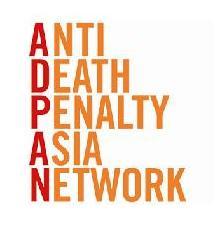
Member(s)
Anti-Death Penalty Asia Network (ADPAN)
on 30 April 2020
The Anti-Death Penalty Asia Network (ADPAN) was founded in Hong Kong on the World Day against the Death Penalty in 2006. In 2014, at its first General Meeting in Taipei, Taiwan, Anti-Death Penalty Asia Network (ADPAN) members approved ADPAN’s Constitution, and ADPAN’s first Executive Committee was elected. ADPAN, an independent Asia-Pacific network committed to working […]
2020
Malaysia
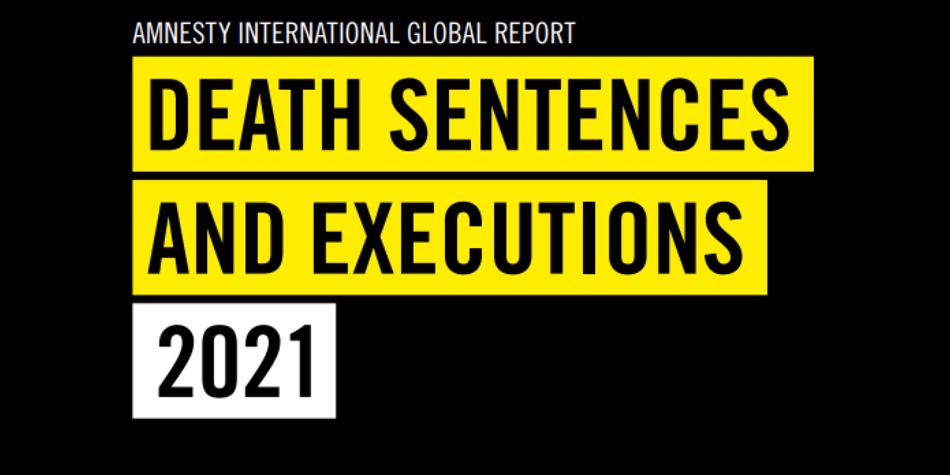
Article(s)
Executions on the rise, but progress toward abolition in 2021
By Amnesty International, on 9 June 2022
On 24 May, Amnesty International published their annual report on the global use of the death penalty, which shows the overall sentences and executions in 2021 Global figures Amnesty International recorded 579 executions in 18 countries in 2021, an increase of 20% from the 483 recorded in 2020. Despite these increases, the 2021 global executions figure constitutes the second-lowest figure recorded […]
2022
Death Row Conditions
Trend Towards Abolition
Article(s)
ACHRS Report: the death penalty in the Arab World in 2007
on 9 May 2008
The Jordan-based Amman Centre for Human Rights has released its second annual report on the status of the death penalty in Arab countries. The report gives both an overview of the region and a detailed look at each Arab state.
2008
Jordan
Document(s)
The North Carolina Racial Justice Act
By North Carolina Coalition For A Moratorium / YouTube, on 1 January 2009
2009
Arguments against the death penalty
More details See the document
House Bill 472 and Senate Bill 461, known as The North Carolina Racial Justice Act, addresses racial discrimination in capital sentencing. This video featuring death row exonoree Edward Chapman, talks about racial bias and how the Racial Justice Act attempts to assure that race would not play a role in who gets the death penalty.
- Document type Arguments against the death penalty
- Themes list Discrimination,
Document(s)
Framing Death Penalty Politics in Malaysia
By Thaatchaayini Kananatu, on 1 September 2022
2022
Academic report
Malaysia
More details See the document
The death penalty in Malaysia is a British colonial legacy that has undergone significant scrutiny in recent times. While the Malaysian Federal Constitution 1957 provides that ‘no person shall be deprived of his life or personal liberty save in accordance with law’, there are several criminal offences (including drug-related crimes) that impose the mandatory and discretionary death penalty. Using Benford and Snow’s framing processes, this paper reviews death penalty politics in Malaysia by analysing the rhetoric of abolitionists and retentionists. The abolitionists, comprising activist lawyers and non-government organisations, tend to use ‘human rights’ and ‘injustice’ frames, which humanise the ‘criminal’ and gain international support. The retentionists, such as victims’ families, use a ‘victims’ justice’ frame emphasising the ‘inhuman’ nature of violent crimes. In addition, the retentionist state shifts between ‘national security’ and ‘national development’ frames. This paper finds that death penalty politics in Malaysia is predominantly a politics of framing.
This article was first published in Crime Justice Journal: https://www.crimejusticejournal.com/issue/view/119
- Document type Academic report
- Countries list Malaysia
Document(s)
Singapore’s death penalty for drug trafficking: What the research says and doesn’t
By Academia SG - Promoting Scorlorahsip Of/For/By Singapore, on 24 January 2024
2024
Academic report
Drug Offenses
Singapore
More details See the document
Published on October 7, 2023.
Of all retentionist countries, Singapore seems to be the most vocal about the need to execute individuals as a form of criminal punishment. MAI SATO (Monash University) reviews studies conducted or commissioned by Singapore’s Ministry of Home Affairs that claim public backing for and the effectiveness of the death penalty in managing drug trafficking. Sato finds that these studies provide far weaker evidence for using the death penalty for drug trafficking than their authors and officials citing them claim.
- Document type Academic report
- Countries list Singapore
- Themes list Drug Offenses
Document(s)
Drug-related Offences, Criminal Justice Responses and the Use of the Death Penalty in South-East Asia
By Office of the United Nations High Commissioner for Human Rights, on 1 January 2019
2019
International law - United Nations
More details See the document
Most of the world’s countries or territories have either abolished the death penalty or no longer use it. More than half of those that retain the death penalty, of which many are in South-East Asia, do so for drug-related offences. Most prisoners on death row in South-East Asia have been convicted of drug-related offences, although law and practice vary considerably among countries that retain the death penalty.
- Document type International law - United Nations
- Themes list Death Penalty, Statistics,
Document(s)
When Justice Fails: Thousands executed in Asia after unfair trials
By Amnesty International / Anti-Death Penalty Asia Network, on 1 January 2011
2011
NGO report
More details See the document
Failures of justice in trials which result in an execution cannot be rectified. In the Asia-Pacific region, where 95 per cent of the population live in countries that retain and use the death penalty, there is a real danger of the state executing someone in error following an unfair trial.
- Document type NGO report
- Themes list Fair Trial,
Document(s)
Tanzania Human Rights Report 2008: Progress through Human Rights
By Sarah Louw / Clarence Kipobota / Legal and Human Rights Centre, on 1 January 2009
2009
NGO report
More details See the document
Tanzania is one of 25 countries in the world that continues to retain the death penalty in its legislation.56 However, de facto, Tanzania is an abolitionist country, as there have been no executions in Tanzania since 1994. Chapter 2.1.1 describes the position of the death penalty in Tanzania.
- Document type NGO report
- Themes list Statistics,
Document(s)
The Death Penalty for Drug Offences: Global Overview 2011. Shared responsibility and shared consequences.
By Patrick Gallahue / Harm Reduction International, on 1 January 2011
2011
NGO report
More details See the document
The Global Overview 2011. It provides a country-by-country analysis of the death penalty for drugs, and is intended to inform policy-makers of the potential for change as well as to shed some light on the environments in which the international fight against illicit drugs is pursued.
- Document type NGO report
- Themes list Drug Offences,
Document(s)
Annual Report on Human Rights 2009
By United Kingdom Foreign & Commonwealth Office, on 1 January 2010
2010
Government body report
More details See the document
During 2009, we continued to strive for the global abolition of the death penalty. We made our opposition to it clear in our engagement with countries around the world, both bilaterally and in partnership with the EU. Bilaterally, we continue to fund work in the Caribbean, Africa, the Middle East and Eastern Asia from our Human Rights Strategic Programme Fund. This includes working with key NGO partners, such as the Death Penalty Project and the Centre for Capital Punishment Studies at Westminster University in London. We also continued to raise the death penalty directly with governments, including China, Jamaica and the US.
- Document type Government body report
- Themes list Trend Towards Abolition,
Document(s)
Report of the Special Rapporteur on extrajudicial, summary or arbitrary executions on a gender-sensitive approach to arbitrary killings
By United Nations, on 8 September 2020
2020
International law - United Nations
More details See the document
In the report, the Special Rapporteur considers key elements of a gender-sensitive perspective to the mandate, in the interests of strengthening an inclusive application of critical norms and standards related to the right to life. These elements include consideration of the impact of gender identity and expression, intersecting with other identities, on the risks factors to killings or death, the degree of predictability of harm and States’ implementation of its due diligence obligations. Applying gender lenses to the notion of arbitrariness, the Special Rapporteur highlights that gender-based killings — when committed by non-State actors — may constitute arbitrary killings. It also shows that violations of the right to life stem not only from an intentional act of deprivation of life by the State or a non-State actor, but also from the deprivation of basic conditions that guarantee life, such as access to essential health care
- Document type International law - United Nations
- Themes list International law, Cruel, Inhuman and Degrading Treatment and Punishment, Torture, Arbitrariness, Death Row Conditions, Death Penalty,
Document(s)
Human Rights and Democracy: The 2010 Foreign & Commonwealth Office Report
By United Kingdom Foreign & Commonwealth Office, on 8 September 2020
NGO report
Afghanistan
More details See the document
The report covers the period from January to December 2010, though some key events in early 2011 have also been included. It highlights the important progressbeing made, serious concerns that we have, and what we are doing to promote our values around the world. It will rightly be studied closely by Parliament, NGOs and the wider public. There is a chapter dedicated to the death penalty, as well as 2010 figures on the death penalty in target countries.
- Document type NGO report
- Countries list Afghanistan
- Themes list Networks,
Document(s)
Activity Report 2014
By World Coalition Against the Death Penalty, on 1 January 2015
2015
NGO report
More details Download [ pdf - 772 Ko ]
The 2014 Activity Report displays the overall situation of the death penalty in different geographical areas of the world: Africa, Middle East and North Africa, Asia-Pacific, Americas and Europe. The report shows the developments, as well as the challenges, in the struggle against the death penalty. Finally, it presents the new strategies that the World Coalition against the Death Penalty is going to develop in the next years.
- Document type NGO report
- Themes list World Coalition Against the Death Penalty,
Document(s)
Report of the Special Rapporteur on the situation of human rights in the Islamic Republic of Iran
By Human Rights Council, on 1 January 2012
2012
Working with...
More details See the document
The present report, the first to be submitted to the Human Rights Council, is submitted pursuant to Council resolution 16/9 and covers the human rights developments since the commencement of the mandate of the Special Rapporteur on 1 August 2011.
- Document type Working with...
- Themes list Country/Regional profiles,
Document(s)
The Death Penalty in 2014 : Year End Report
By Death Penalty Information Center, on 1 January 2014
2014
NGO report
More details See the document
On December 18, DPIC released its annual report on the latest developments in capital punishment, “The Death Penalty in 2014: Year End Report.” In 2014, 35 people were executed, the fewest in 20 years. Death sentences dropped to their lowest level in the modern era of the death penalty, with 72 people sentenced to death, the smallest number in 40 years. Just seven states carried out executions, and three states (Texas, Missouri, and Florida) accounted for 80% of the executions. The number of states carrying out executions was the lowest in 25 years. Seven people were exonerated from death row this year, including three men in Ohio, who were cleared of all charges 39 years after their convictions, the longest time among all death row exonerees. There have now been 150 people exonerated from death row since 1973. “The relevancy of the death penalty in our criminal justice system is seriously in question when 43 out of our 50 states do not apply the ultimate sanction,” said Richard Dieter, DPIC’s Executive Director and the author of the report. “The U.S. will likely continue with some executions in the years ahead, but the rationale for such sporadic use is far from clear.”
- Document type NGO report
- Themes list Networks, Statistics,
Document(s)
Question of the death penalty: Report of the Secretary-General 2016
By United Nations, on 1 January 2016
2016
International law - United Nations
rufrzh-hantesMore details See the document
Pursuant to Human Rights Council decision 18/117, the present report is submitted to update previous reports on the question of the death penalty. The report confirms that the trend towards the universal abolition of the death penalty is continuing. However, a minority of States continued to use the death penalty in contravention of international human rights law. As requested in Human Rights Council resolution 22/11, the present report also includes information on the human rights of children of parents sentenced to the death penalty or executed.
- Document type International law - United Nations
- Themes list Trend Towards Abolition,
- Available languages Вопрос о смертной казни Доклад Генерального секретаря 2016Question de la peine de mort: Rapport du Secrétaire général 2016死刑问题 秘书长的报告 2016La cuestión de la pena capital: Informe del Secretario General 2016
Document(s)
REPORT OF THE TASK FORCE ON REVIEW OF THE MANDATORY DEATH SENTENCE UNDER SECTION 204 OF THE PENAL CODE
By THE TASK FORCE ON REVIEW OF THE MANDATORY DEATH SENTENCE , on 1 January 2019
2019
International law - Regional body
More details See the document
The report incorporates the results of the audit and recommendations for the design of a comprehensive framework for resentence hearings of capital offenders in Kenya. The framework could guide courts to conduct the resentence hearing process in a structured and evidence-based manner, taking into consideration all the key information that is necessary for mitigation, reintegration and resettlement needs of the offenders, allow the input of the victims, families and communities to be considered, and ensure consistency in resentencing judgments across the country.
- Document type International law - Regional body
- Themes list Death Penalty,
Document(s)
The Death Penalty Project: 2018 Report
By The Death Penalty Project, on 1 January 2019
NGO report
More details See the document
The Death Penalty Project publishes its 2018 annual report. It provides testimonies, figures and a look on the actions accomplished in favour of the human rights worlwide.
- Document type NGO report
- Themes list Right to life, Legal Representation, Death Penalty,
Document(s)
Iran Annual Report Oct ’17 – Oct ’18
By Human Rights Activists News Agency (HRANA), on 1 January 2018
2018
NGO report
More details See the document
Human Rights Activists News Agency (HRANA)- On the World Day Against the Death Penalty, the Center of Statistics at Human Rights Activists in Iran (HRAI) has published its annual report, in efforts to sensitize the public about the situation of the death penalty in Iran.
- Document type NGO report
- Themes list Death Penalty, Statistics, Country/Regional profiles,
Document(s)
The Kentucky Death Penalty Assessment Report: Evaluating fairness and accuracy in state death panlty systems. An Analysis of Kentucky’s Death Penalty Laws, Procedures, and Practices
By American Bar Association, on 1 January 2011
2011
NGO report
More details See the document
This report examines how state death penalty systems are functioning in design and practice and are intended to serve as the bases from which states can launch comprehensive self-examinations, impose reforms, or in some cases, impose moratoria.
- Document type NGO report
Document(s)
The Death Penalty in 2016: video summary of DPIC Year End Report.
By Death Penalty Information Center, on 1 January 2016
2016
NGO report
More details See the document
DPIC’s 2016 Year-End Report: another record decline in death penalty use in the US. A video summary of the report.
- Document type NGO report
- Themes list Trend Towards Abolition, Death Penalty, Statistics, Country/Regional profiles,
Document(s)
2012 Report – Moratorium on the use of the death penalty
By United Nations, on 3 August 2012
2012
United Nations report
Moratorium
aresfrruzh-hantMore details See the document
The present report is submitted to the General Assembly pursuant to its resolution 65/206. It discusses the trend towards abolition of the death penalty and the establishment of a moratorium on execution. The report also reflects on the application of international standards relating to the protection of the rights of those facing the death penalty. It further discusses the importance of making available relevant information with regard to the use of the death penalty, which can contribute to transparent national debates and international and regional initiatives for the promotion of the universal abolition of the death penalty.
- Document type United Nations report
- Themes list Moratorium
- Available languages تقرير 2012 - وقف العمل بعقوبة الإعدامInforme 2012 - Moratoria del uso de la pena de muerteRapport 2012 - Moratoire sur l’application de la peine de mortДоклад 2012 - Мораторий на применение смертной казни2012报告 - 暂停使用死刑
Document(s)
EVALUATING FAIRNESS AND ACCURACY IN STATE DEATH PENALTY SYSTEMS: The Alabama Death Penalty Assessment Report: An Analysis of Alabama’s Death Penalty Laws, Procedures, and Practices
By American Bar Association, on 1 January 2006
2006
NGO report
More details See the document
To assess fairness and accuracy in Alabama’s death penalty system, the Alabama Death Penalty Assessment Team researched twelve issues: (1) collection, preservation, and testing of DNA and other types of evidence; (2) law enforcement identifications and interrogations; (3) crime laboratories and medical examiner offices; (4) prosecutorial professionalism; (5) defense services; (6) the direct appeal process; (7) state postconviction proceedings; (8) clemency; (9) jury instructions; (10) judicial independence; (11) the treatment of racial and ethnic minorities; and (12) mental retardation and mental illness. The Alabama Death Penalty Assessment Report summarizes the research on each issue and analyzes the level of compliance with the relevant ABA Recommendations.
- Document type NGO report
Document(s)
EVALUATING FAIRNESS AND ACCURACY IN STATE DEATH PENALTY SYSTEMS: The Florida Death Penalty Assessment Report: An Analysis of Florida’s Death Penalty Laws, Procedures, and Practices
By American Bar Association, on 1 January 2006
NGO report
More details See the document
To assess fairness and accuracy in Florida’s death penalty system, the Florida Death Penalty Assessment Team researched the twelve issues that the American Bar Association identified as central to the analysis of the fairness and accuracy of a state’s capital punishment system: (1) collection, preservation, and testing of DNA and other types of evidence; (2) law enforcement identifications and interrogations; (3) crime laboratories and medical examiner offices; (4) prosecutorial professionalism; (5) defense services; (6) the direct appeal process; (7) state post-conviction proceedings; (8) clemency; (9) jury instructions; (10) judicial independence; (11) racial and ethnic minorities; and (12) mental retardation and mental illness. The Florida Death Penalty Assessment Report devotes a chapter to each of these issues, which follow a preliminary chapter on Florida death penalty law (for a total of 13 chapters). Each of the issue chapters begins with a discussion of the relevant law and then reaches conclusions about the extent to which the State of Florida complies with the ABA Recommendations.
- Document type NGO report
Document(s)
EVALUATING FAIRNESS AND ACCURACY IN STATE DEATH PENALTY SYSTEMS: The Indiana Death Penalty Assessment Report: An Analysis of Indiana’s Death Penalty Laws, Procedures, and Practices
By American Bar Association, on 1 January 2007
2007
NGO report
More details See the document
To assess fairness and accuracy in Indiana’s death penalty system, the Indiana Death Penalty Assessment Team researched the twelve issues that the American Bar Association identified as central to the analysis of the fairness and accuracy of a state’s capital punishment system: (1) collection, preservation, and testing of DNA and other types of evidence; (2) law enforcement identifications and interrogations; (3) crime laboratories and medical examiner offices; (4) prosecutorial professionalism; (5) defense services; (6) the direct appeal process; (7) state post-conviction proceedings; (8) clemency; (9) jury instructions; (10) judicial independence; (11) racial and ethnic minorities; and (12) mental retardation and mental illness. The Indiana Death Penalty Assessment Report devotes a chapter to each of these issues, which follow a preliminary chapter on Indiana death penalty law (for a total of 13 chapters). Each of the issue chapters begins with a discussion of the relevant law and then reaches conclusions about the extent to which the State of Indiana complies with the ABA Recommendations.
- Document type NGO report

